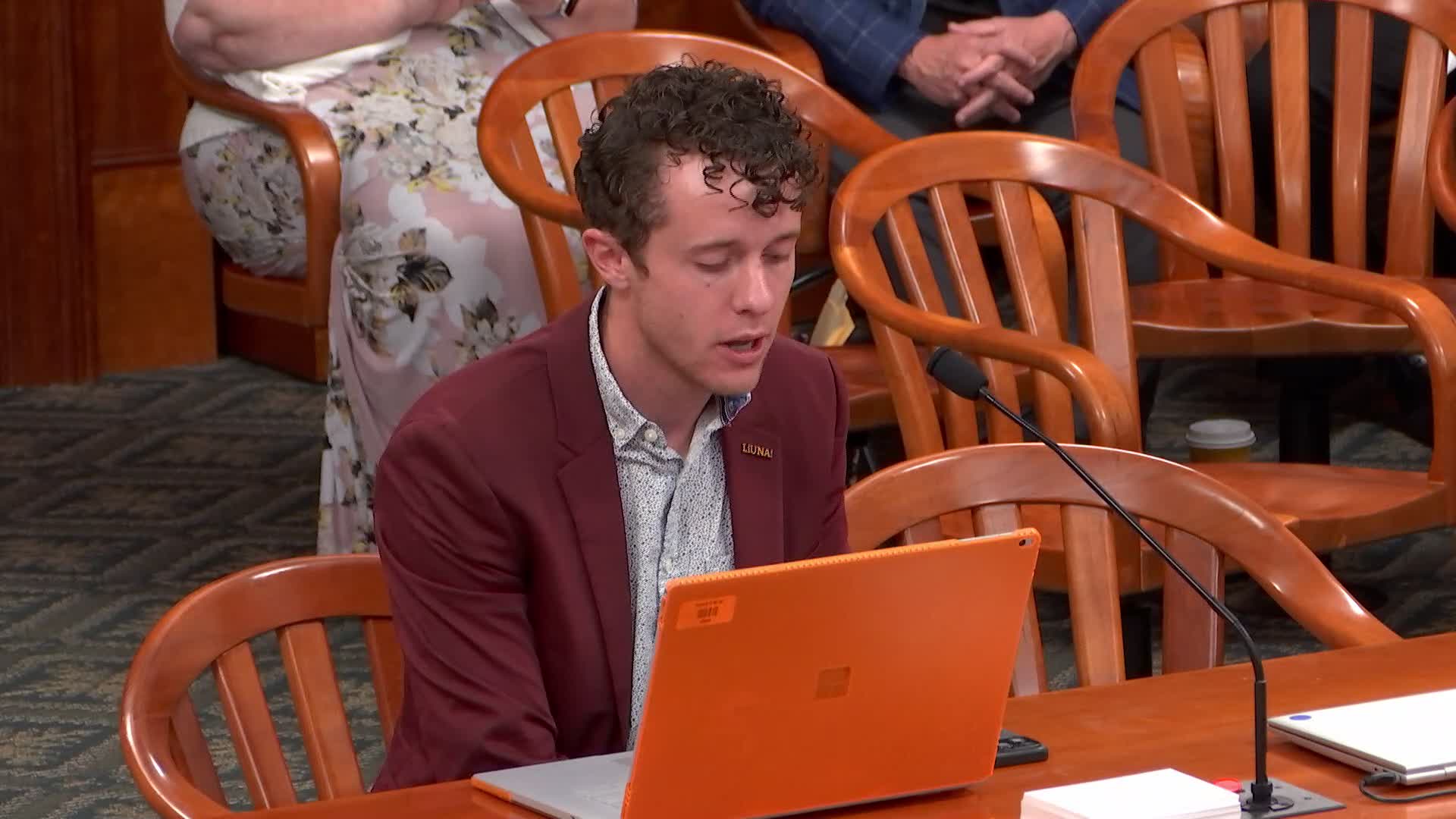Union Pushes for Stronger Wage Protections in Michigan
June 13, 2024 | Labor, House of Representative, Committees , Legislative, Michigan

This article was created by AI summarizing key points discussed. AI makes mistakes, so for full details and context, please refer to the video of the full meeting. Please report any errors so we can fix them. Report an error »

In a recent government meeting, representatives discussed the implications of Senate Bill 571, which aims to enhance Michigan's prevailing wage law. The bill, supported by labor union representatives, seeks to introduce additional enforcement mechanisms, improve transparency, and expand coverage to include renewable energy projects, such as solar and wind construction.
The testimony highlighted the importance of certified payroll as a compliance measure, which would ensure that contractors pay workers the agreed-upon wages and prevent wage theft. Advocates argue that this requirement would bolster public trust in contractors and reduce the risk of unqualified firms securing state projects. The bill also proposes creating a state registration list of contractors, further promoting accountability.
Additionally, the bill aligns with Governor Gretchen Whitmer's climate initiatives, including the My Healthy Climate Plan, by ensuring that a skilled workforce is available for the growing renewable energy sector. Supporters believe that standardizing compensation across projects will encourage investment in apprenticeship programs, ultimately leading to a more skilled labor force.
The meeting also touched on the need to include broadband installation under the prevailing wage law, emphasizing the importance of a well-compensated workforce in achieving the state's connectivity goals.
However, some committee members raised concerns about the necessity of the proposed changes, questioning whether the existing enforcement mechanisms were sufficient and expressing apprehension about the potential increase in government spending associated with the new regulations.
Overall, Senate Bill 571 represents a significant step towards strengthening labor protections in Michigan, particularly in the context of the evolving energy landscape and infrastructure development.
The testimony highlighted the importance of certified payroll as a compliance measure, which would ensure that contractors pay workers the agreed-upon wages and prevent wage theft. Advocates argue that this requirement would bolster public trust in contractors and reduce the risk of unqualified firms securing state projects. The bill also proposes creating a state registration list of contractors, further promoting accountability.
Additionally, the bill aligns with Governor Gretchen Whitmer's climate initiatives, including the My Healthy Climate Plan, by ensuring that a skilled workforce is available for the growing renewable energy sector. Supporters believe that standardizing compensation across projects will encourage investment in apprenticeship programs, ultimately leading to a more skilled labor force.
The meeting also touched on the need to include broadband installation under the prevailing wage law, emphasizing the importance of a well-compensated workforce in achieving the state's connectivity goals.
However, some committee members raised concerns about the necessity of the proposed changes, questioning whether the existing enforcement mechanisms were sufficient and expressing apprehension about the potential increase in government spending associated with the new regulations.
Overall, Senate Bill 571 represents a significant step towards strengthening labor protections in Michigan, particularly in the context of the evolving energy landscape and infrastructure development.
View full meeting
This article is based on a recent meeting—watch the full video and explore the complete transcript for deeper insights into the discussion.
View full meeting
